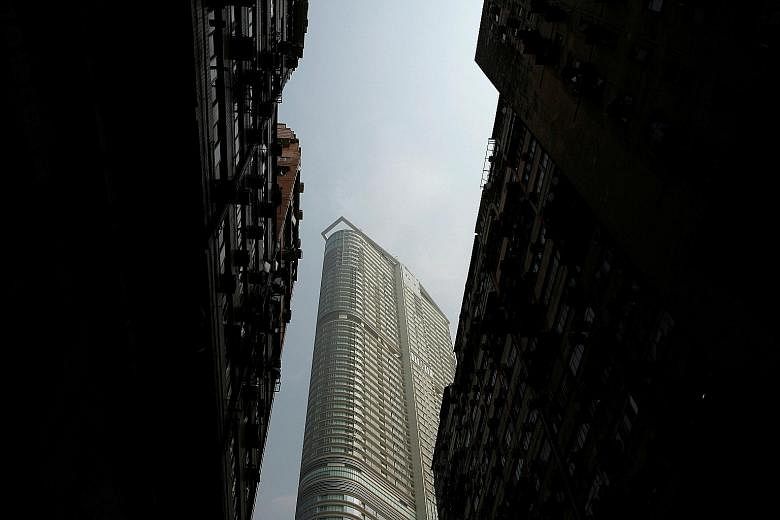HONG KONG • A pledge by Hong Kong's incoming leader Carrie Lam to make the city's vertiginous property prices more affordable could founder on the bottomless pockets of mainland Chinese developers, who are bidding up the price of land.
Home prices in Hong Kong have jumped 364 per cent since 2003, while the median monthly household income has risen just 61 per cent, pushing home ownership out of reach for many.
While the mass protests that paralysed parts of Hong Kong for 79 days in 2014 were primarily about demands for full democracy from Beijing, many were also motivated by the rising cost of living and accommodation in the city.
A typical Hong Kong apartment costs 18.1 times gross annual median income, according to research group Demographia, and the city topped its survey of the world's most expensive places for accommodation for the seventh straight year.
Second-placed Sydney was a long way behind on 12.2.
"Anything over a multiple of 5.1 is usually deemed as being 'severely unaffordable'," said Mr Denis Ma, JLL's head of research in Hong Kong.
With most of the city's more than seven million citizens living in cramped apartments - some no bigger than a parking space - Mrs Lam, who takes over as chief executive on July 1, is aiming to tackle the problem by increasing the supply of housing and land.
But Ms Alice Mak, head of the Hong Kong legislature's housing panel, said the influx of capital from mainland developers will make Mrs Lam's job very difficult.
"If the government wants the housing market to grow at a stable rate, this will be a very big challenge," she said.
Chinese companies successfully bid for six out of 27 plots of land sold by the government in the fiscal year starting April 2016, Lands Department data shows, but, in money terms, they accounted for 44 per cent of total transactions.
In the previous fiscal year, Chinese firms paid more on land deals than their Hong Kong competitors, taking up 55 per cent of the value and nearly half of the land sold.
Mainland developer KWG Property, which won a plot of residential land for a record price co-bidding with Logan Property, said lower lending rates and taxes make development in Hong Kong more profitable than in China.
Hong Kong's home-grown property companies are being edged out of their own market and are looking overseas to do business.
Local developer David Chiu, chairman of Far East Consortium International,told a conference in February: "In the past, there were 20 developers fighting for land, but now with Chinese developers joining, it means another 20 more."
Meanwhile, China's major developers saw sales surge in the first quarter despite government controls on the real-estate market, said Shanghai Securities News.
Twenty-one listed developers recorded 621.6 billion yuan (S$126.5 billion) of combined sales in real-estate contracts signed in the first quarter, up 69 per cent year on year.
REUTERS, XINHUA


